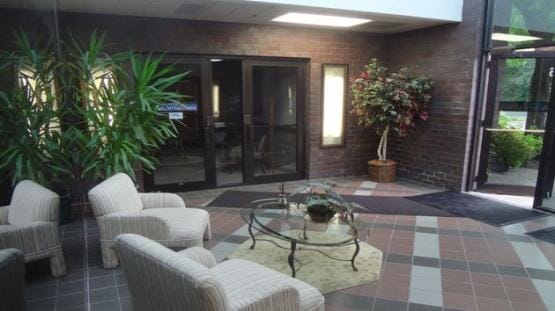Minnesota Alternatives is a treatment facility that offers a unique approach to substance abuse disorder treatment and provides an alternative to the 12-Step, abstinence-based “Minnesota Model”. Minnesota Alternatives offers adult outpatient mental health and addiction treatment, and focuses on skill development, engagement, neuroscience and personalized interventions. Treatment options utilize meditation, imagery and cognitive behavioral therapies.
ABOUT MINNESOTA ALTERNATIVES
Located in the community of Spring Lake Park, Minnesota Alternatives offers outpatient programs (OPs) and recovery and consultation services to adult men and women seeking recovery from issues of substance use, as well as co-occurring mental health disorders. Offering alternative treatments to the 12-step model of recovery, the facility “focuses on engagement, skill development, holistic and personalized interventions,” according to its website.
TREATMENT & ASSESSMENT
Minnesota Alternatives is a harm-reduction based program, encouraging a gradual decrease of alcohol and drug use, rather than an abstinence-only program. Though not the basis for the program, 12-Step may be incorporated if clients desire.
Treatment begins with 15 to 20 minutes of guided meditation, followed by “open talk” discussions, where members check on each other’s progress and discuss topics and readings, with refreshments provided. Typical groups average six to eight people. Groups discuss education, skills development, and weekend planning, followed by individual meetings with staff counselors. Programs also offer emotion-based interventions and life skills training.
Treatment includes evidence-based therapies such as mindfulness meditation, eye movement desensitization and reprocessing (EMDR), cognitive behavioral therapy (CBT), and others. Typical mental health issues addressed include depression, anxiety, PTSD, and others. Reiki and therapeutic massage are also offered.
Programming is generally offered from 11 a.m. to 4 p.m. three to four times per week, and from 5 to 8 p.m. three times a week. Rather than fixed lengths of treatment, Minnesota Alternatives lets clients finish when they feel they have achieved their treatment goals.
STAFF CREDENTIALS
Minnesota Alternatives employs a part-time medical doctor who offers addiction medicine and psychiatry services, as well as a licensed care social worker, licensed marriage and family therapist, licensed counselors, peer specialist, and an office manager.
WHAT ALUMNI SAY
The two alumni polled by Best-rehabs.com to date gave positive reviews for Minnesota Alternatives. They both rated the facility a perfect five stars for its holistic treatment offerings, the staff’s level of support, the effectiveness of individuals counseling, and the facility’s ability to resolve conflict.
“My program was tailored to my needs as they came up,” alum Sarah wrote. Another alum, R.R., wrote: “An overall good facility with great holistic offerings and supportive staff.”
On Google reviews, eight reviewers to date rated the facility an average 4.4 out of five stars, with seven positive reviews. In a representative five-star review, alum David wrote: “This is a no judgement, No Label, alternative to the traditional 12 step, pass fail, stringent and more draconian style of treatment we are all familiar with.”
WHAT FRIENDS & FAMILY SAY
The three loved ones polled by Best-rehabs.com to date also praised the facility, all offering perfect five-star ratings for its counseling options, the level of family involvement, and the effectiveness of mental health treatment. One anonymous parent wrote: “The program is a great program with excellent and caring staff. My child needs put into practice the info he has learned frome program.”
WHAT STAFF SAY
The three staff members polled by Best-rehabs.com also gave positive reviews of Minnesota Alternatives, rating the facility four or five out of five stars in nearly every metric, including respect of privacy, honesty, and fair pricing. In comments, the employees praised the facility’s client-centered treatment, flexibility, and its holistic options, though a couple wrote that the program sometimes lacked structure and risk management. “People are able to self direct what is important for them on their own terms which makes them more accountable and successful in the long run,” one employee wrote.
FINANCING
Costs vary depending on the purchased treatment options and resources for payment. Most insurance plans are accepted, including Aetna, Cigna, and Blue Cross/Blue Shield. Short-term prevention services cost $600 per 24 hours, up to 48 hours, and private substance abuse assessments cost $125. Payment plans and sliding scale fees may be available to those who qualify.
CONCLUSIONS
Minnesota Alternatives runs a non-profit which is currently raising funds to open a peer support center offering a AA alternative for clients experiencing issues of substance use.
[1]
